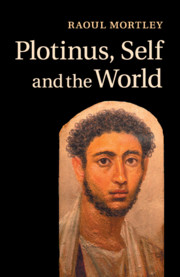Book contents
- Frontmatter
- Contents
- Preface
- Introduction
- 1 The individuated self and memory
- 2 Memory and forgetting
- 3 Ignorance, love and play
- 4 Plotinus’ Eros
- 5 The self: ‘and we too are kings’
- 6 Being and having
- 7 Self-knowledge
- 8 Art and the seduction of beauty
- 9 Face, image and the self
- Conclusion
- Bibliography
- Index
- References
7 - Self-knowledge
Published online by Cambridge University Press: 05 October 2014
- Frontmatter
- Contents
- Preface
- Introduction
- 1 The individuated self and memory
- 2 Memory and forgetting
- 3 Ignorance, love and play
- 4 Plotinus’ Eros
- 5 The self: ‘and we too are kings’
- 6 Being and having
- 7 Self-knowledge
- 8 Art and the seduction of beauty
- 9 Face, image and the self
- Conclusion
- Bibliography
- Index
- References
Summary
The idea of the self and its own ranges over, as we have seen, the spectrum of the like and the unlike, the same and the other. Ownness is the idea by which Plotinus integrates the two opposing principles of identity and otherness, in that owning something provides the bridge between selfhood and otherness. But otherness is a key part of Plato's approach to self-knowledge, and consideration of this issue starts with two passages of Plato, both to do with self-knowledge as derived from the other, but the other in a peculiar sense: that other which is a mirror, and which in some sense sends back something of oneself. As is well known, the idea of the mirror as the key to self-knowledge has an extraordinary range in Western philosophy moving on from Plato through to the exegesis of the myth of Narcissus, down to the Neo-Freudian philosophy of Jacques Lacan, who wrote about the mirror-stage traversed by the infant as the key to personal development.
Self-knowledge is a central issue for Plotinus: what is it that has made the souls be ignorant of themselves, he asks. But self-knowledge has a problem about it, in the Greek tradition, in that knowledge usually involves something else. This aporia was developed by Plato in the Charmides, and was taken as a central dilemma by Plotinus who deals with it throughout this treatise, particularly in V.1(10)3, where he responds to the dilemma as posed by the sceptics. He asks whether we have to imagine self-thinking as requiring a complex entity, with one part dedicated to looking at the other parts. In general, Plotinus will take a radical stance on these issues. Any concern with oneself will in the end be about what lies before one, or above, and self-thought will be excluded from the highest form of being.
- Type
- Chapter
- Information
- Plotinus, Self and the World , pp. 94 - 109Publisher: Cambridge University PressPrint publication year: 2013



